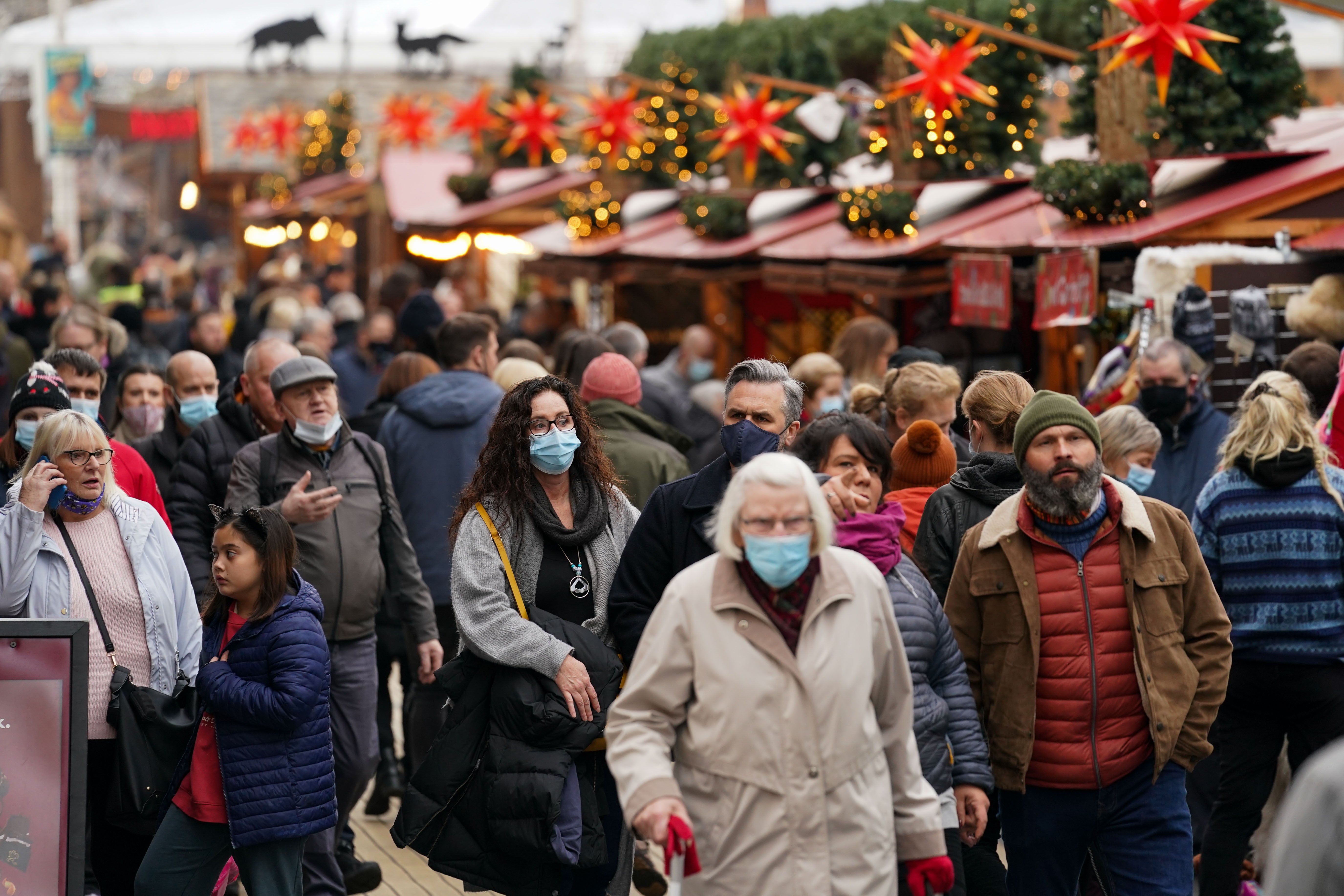Significant uncertainty remains over Omicron – Professor
A large wave of infections is projected for January.

Your support helps us to tell the story
From reproductive rights to climate change to Big Tech, The Independent is on the ground when the story is developing. Whether it's investigating the financials of Elon Musk's pro-Trump PAC or producing our latest documentary, 'The A Word', which shines a light on the American women fighting for reproductive rights, we know how important it is to parse out the facts from the messaging.
At such a critical moment in US history, we need reporters on the ground. Your donation allows us to keep sending journalists to speak to both sides of the story.
The Independent is trusted by Americans across the entire political spectrum. And unlike many other quality news outlets, we choose not to lock Americans out of our reporting and analysis with paywalls. We believe quality journalism should be available to everyone, paid for by those who can afford it.
Your support makes all the difference.There is still “significant uncertainty” about the impact of the Omicron variant, but the modelling will be refined as more data becomes available, an expert has said.
Scientists advising the Government have said tougher Covid restrictions may be needed to prevent Omicron causing anywhere between 25,000 to 75,000 deaths in England over the next five months.
As better data becomes available in coming weeks we can expect these models to be refined
Experts from the London School of Hygiene & Tropical Medicine (LSHTM), who also sit on the Scientific Pandemic Influenza Group on Modelling (SPI-M) or the Scientific Advisory Group for Emergencies (Sage), used experimental data to look at how Omicron may transmit as the country heads into 2022, and predicted a large wave of infections in January.
A wave of infection is projected which could lead to a peak of more than 2,000 daily hospital admissions, with 175,000 hospital admissions and 24,700 deaths between December 1 this year and April 30 next year, even under the most optimistic scenario.
The most pessimistic scenario looked at by the modellers – high immune escape from vaccines and lower effectiveness of boosters – projects a wave of infection which is likely to lead to a peak in hospital admissions around twice as high as the peak seen in January 2021, if no additional control measures are taken.
This could cause 492,000 hospital admissions and 74,800 deaths, according to the study, which has not yet been peer-reviewed.
Professor Paul Hunter, professor in medicine, University of East Anglia, said any model “is only as good as its assumptions”, adding that one key assumption in this model is that severity of disease outcomes for omicron is the same as for Delta in unvaccinated people.
“Although we will not know for certain for a few weeks indications from South Africa do suggest that Omicron does cause less severe disease than Delta, though this is likely to be due to partial immunity.
“There is early as yet not peer reviewed data suggesting that although Omicron mutations are enough to escape antibody, T cell immunity would be less compromised.
“It is thought that T cell immunity is more important for reducing risk from severe disease than it is for reducing the milder nose and throat infections, consequently.
“Consequently there is still significant uncertainty over how much less severe Omicron would be in the UK context,” he said.
Prof Hunter added: “As better data becomes available in coming weeks we can expect these models to be refined.”
Later on Sky News, Prof Hunter was asked about the current situation being a guessing game for the Government due to experts still ascertaining information about Omicron so close to Christmas.
“Quite right. Yeah, absolutely. It is probably the most difficult decision we’ve had in the whole of this pandemic in terms of the uncertainty of the outcomes,” he said.
He said that while the group that has carried out the modelling is “one of the best” in the country, they are still working on assumptions that we do not know are too soft or too harsh.
“And until we get that data we won’t really know for certain,” he said.
Prof Hunter added: “There are significant uncertainties around a lot of the assumptions around these models at the moment, particularly how bad Omicron will be in relationship to Delta.”